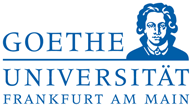Project Proliefs
From Intuitive to Professional Beliefs
The project Proliefs focuses on teachers’ beliefs as one important aspect of teachers’ professional competence that influences their instructional behavior.

The project “Proliefs” examines beliefs about cooperative learning and beliefs about classroom management. In six studies we will investigate intuitive, non-reflected beliefs and aim to identify relevant factors which impede or support the development of reflected, professional beliefs. This research is based on a cognitive-affective model of belief change which proposes that there are special motivational requirements in order to achieve a profound change of teachers’ beliefs.
Study 1: The influence of motivational, affective and cognitive factors on belief change in primary school teachers (questionnaire study conducted during a professional development workshop as part of the project „Individuelle Förderung und adaptive Lern-Gelegenheiten in der Grundschule“, IGEL)
Study 2: The influence of motivational, affective and cognitive factors on belief change in middle school teachers (questionnaire study conducted during a professional development workshop in cooperation with the project „Conditions and Consequences of Classroom Assessment“, Co²CA)
Study 3: Beliefs of primary school teachers concerning cooperative learning and class management (interview study)
Study 4: The interaction between motivational, affective and cognitive factors and beliefs of primary school teachers concerning cooperative learning and class management (internet based questionnaire study)
Study 5: The influence of motivational, affective and cognitive factors on belief change in student teachers (questionnaire study during a lecture; pilot study & main study)
Study 6: The influence of the perception of learning situations on student teachers’ learning (experiment)
Taken together, these studies indicate that (prospective) teachers differ in their beliefs and that teachers’ beliefs do change following participation in a teacher education course designed to support the development of professional beliefs. Interventions for (prospective) teachers seem to be successful if they activate intensive cognitive processing. The preparedness for intensive processing depends on the teachers’ appraisal of the learning situation as either challenging or threatening. This, in turn, is influenced by individual resources of (prospective) teachers like self-efficacy and time.
Selected Publications
- Decker, A.-T., Voss, T., & Kunter, M. (2015). The relationship between quality of discourse during teacher induction classes and beginning teachers’ beliefs. European Journal of Psychology of Education, 30, 41-61. doi:10.1007/s10212-014-0227-4
- Schlax, J. (2016). Überzeugungswandel bei Lehrkräften. Eine Überprüfung des Cognitive Affective Model of Conceptual Change am Thema des kooperativen Lernens. Heidelberg: Springer. doi:10.1007/978-3-658-12599-8
- Seiz, J., Voss, T., & Kunter, M. (2015). When knowing is not enough – The relevance of teachers’ cognitive and emotional resources for classroom management. Frontline Learning Research, 3(1), 54-75. doi:10.14786/flr.v3i1.141



